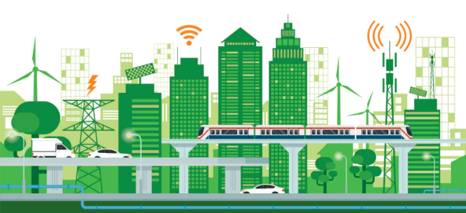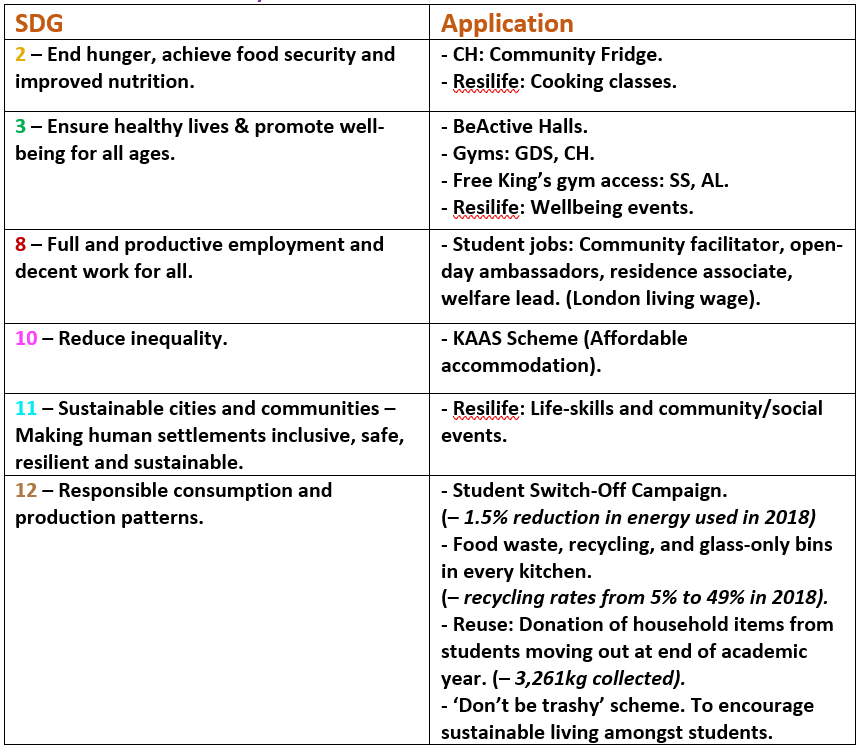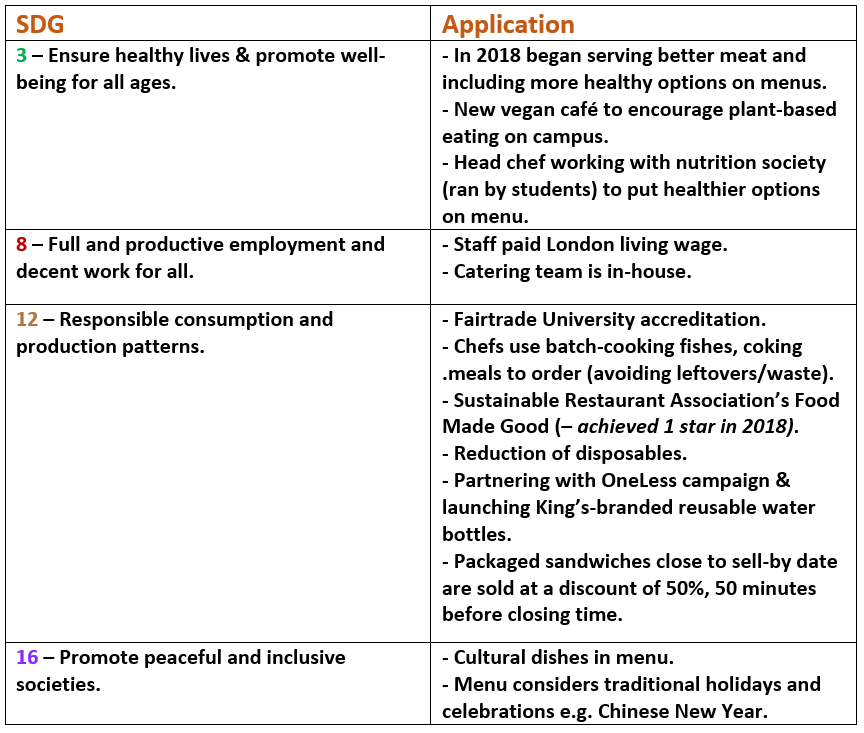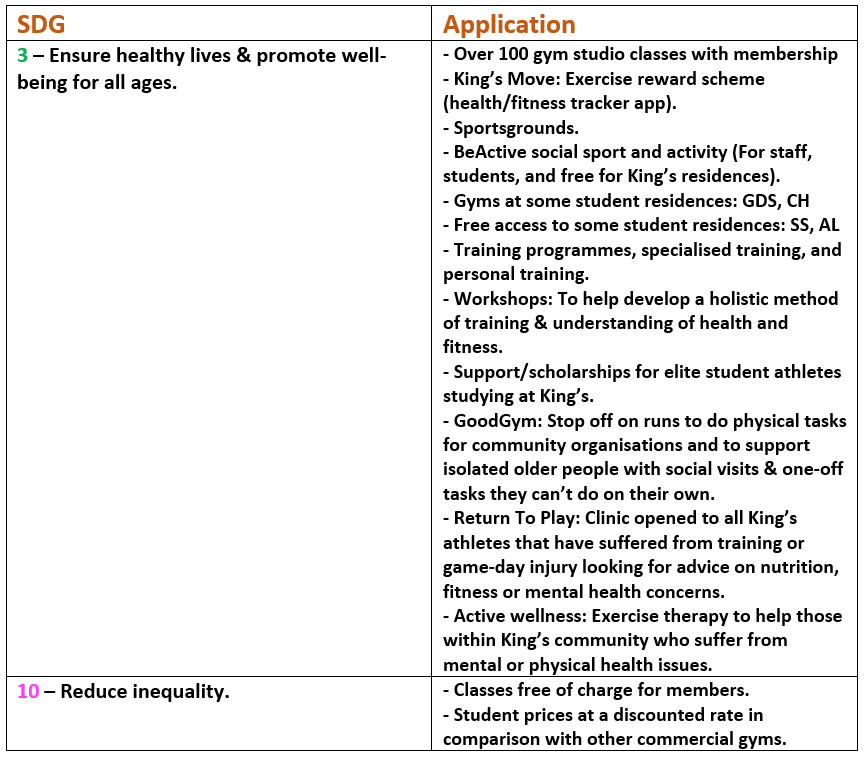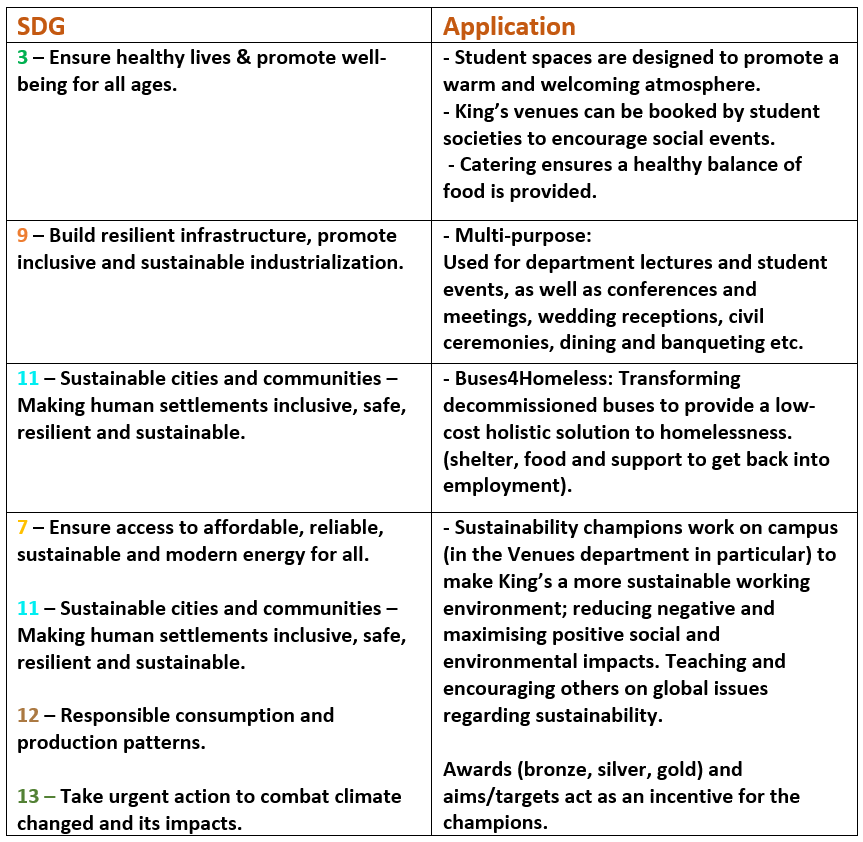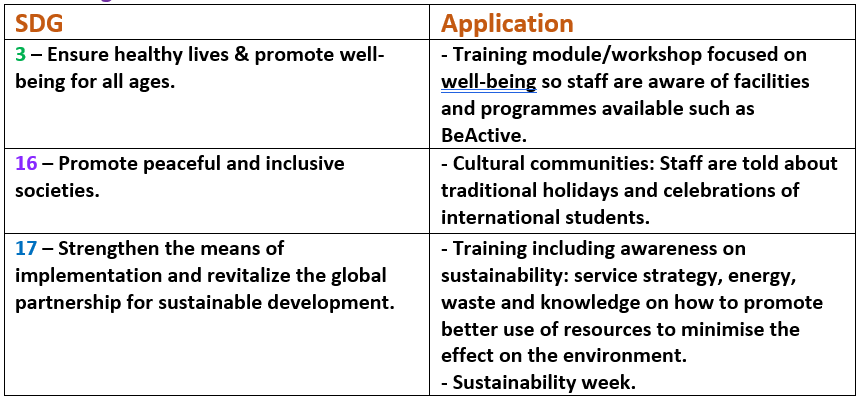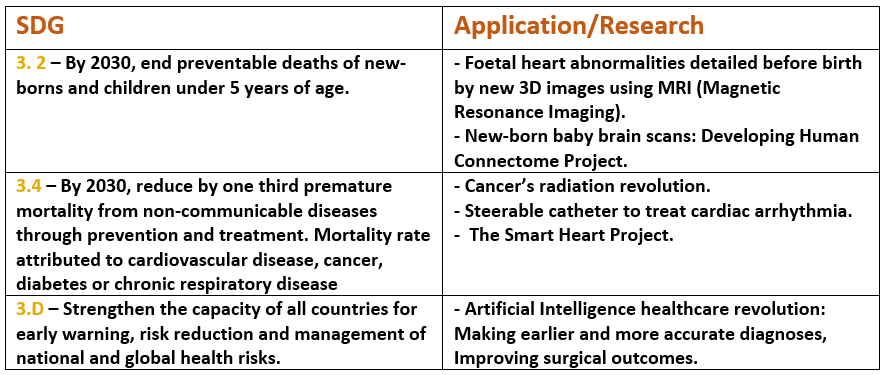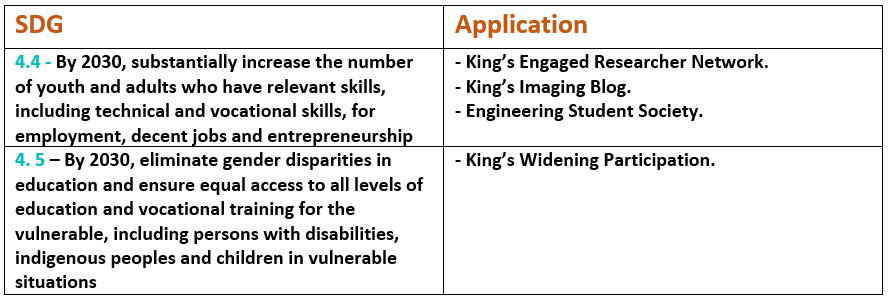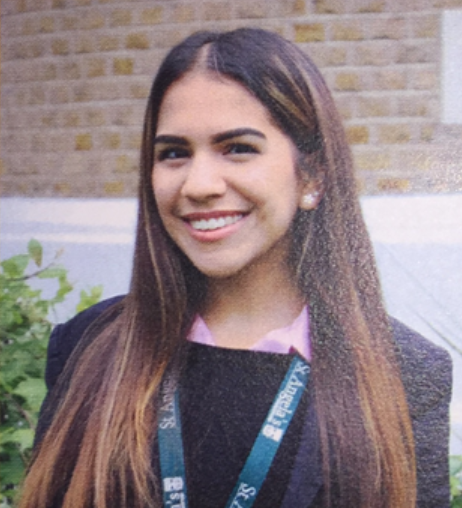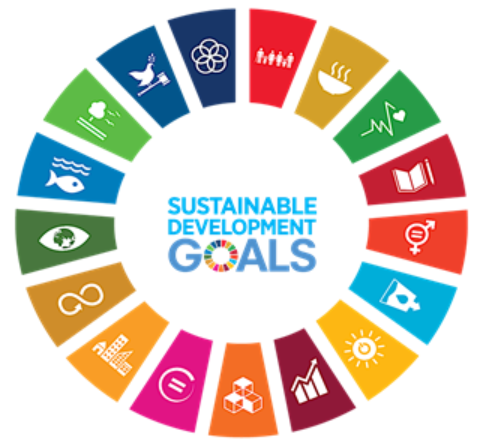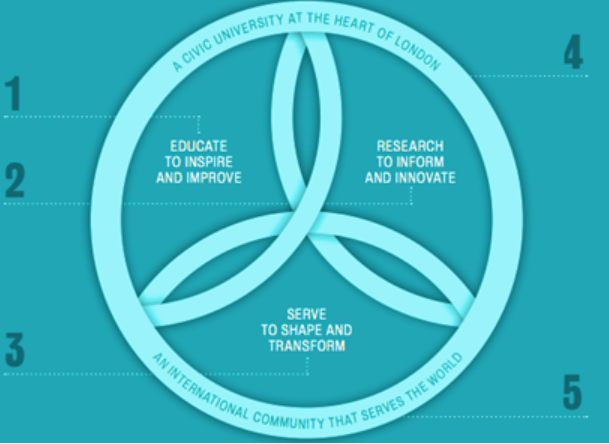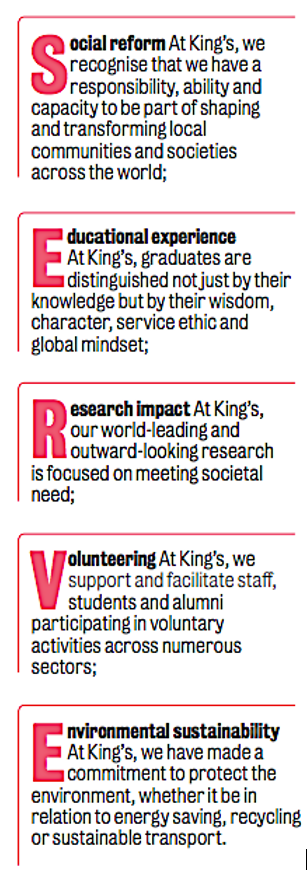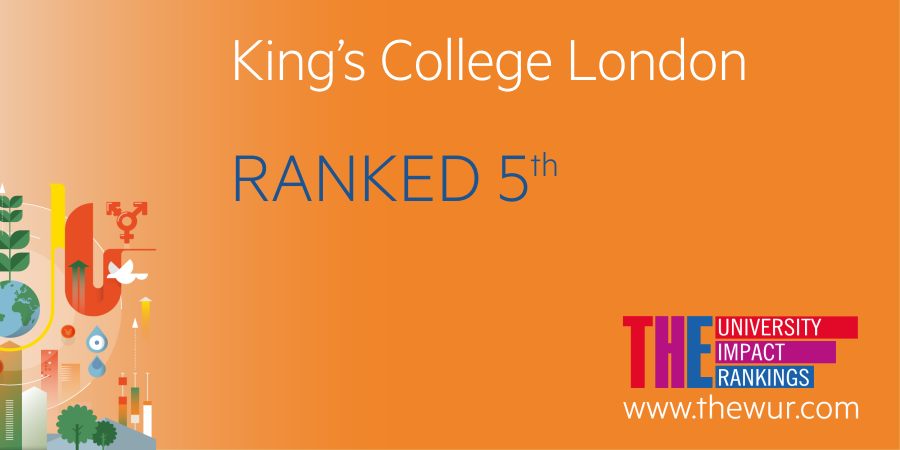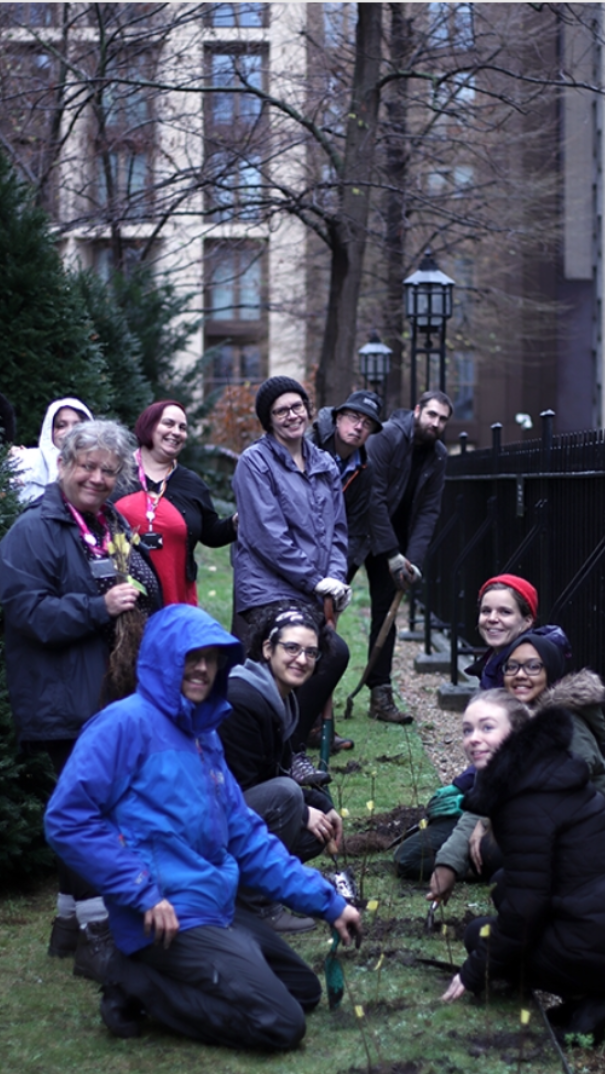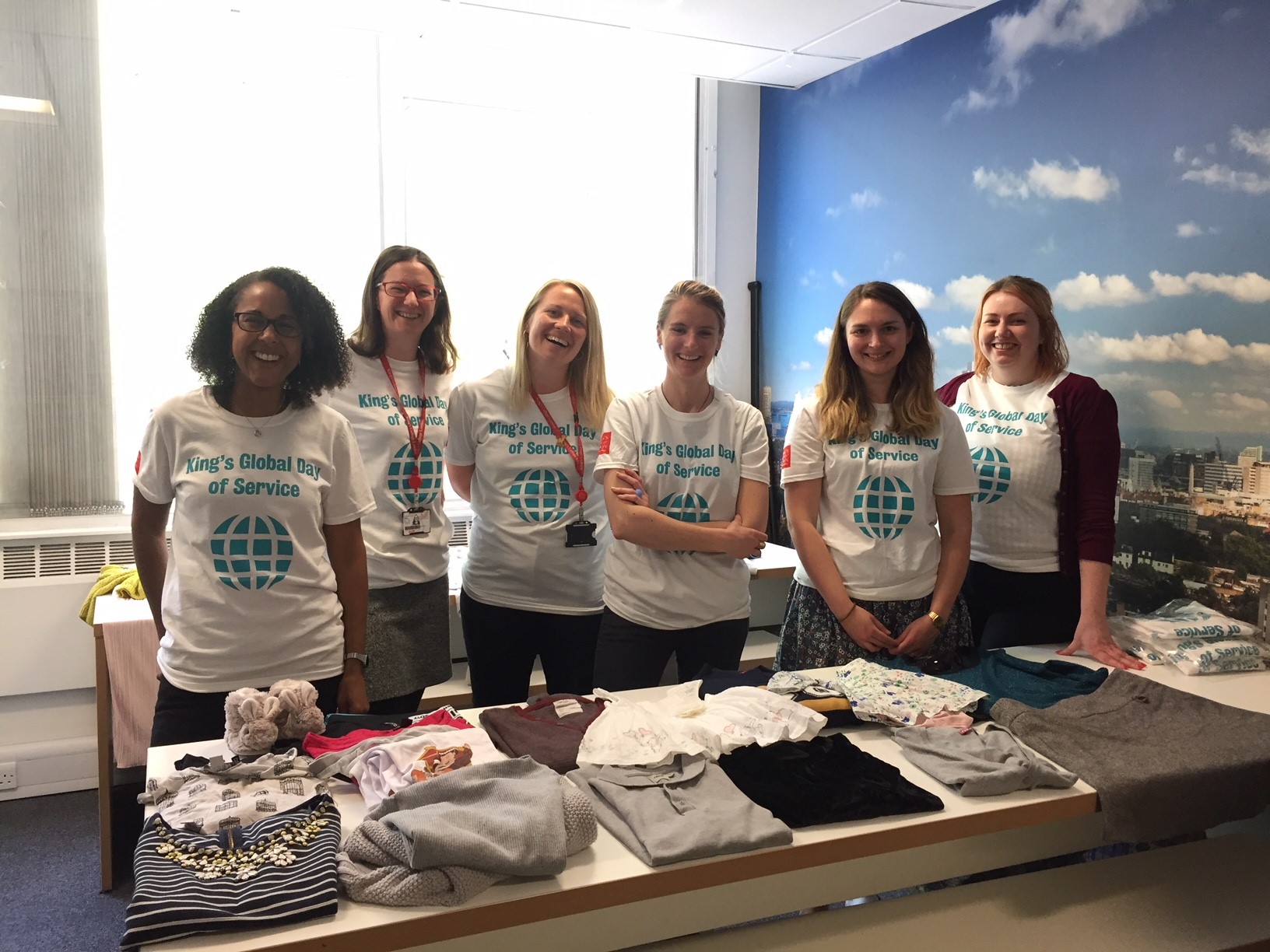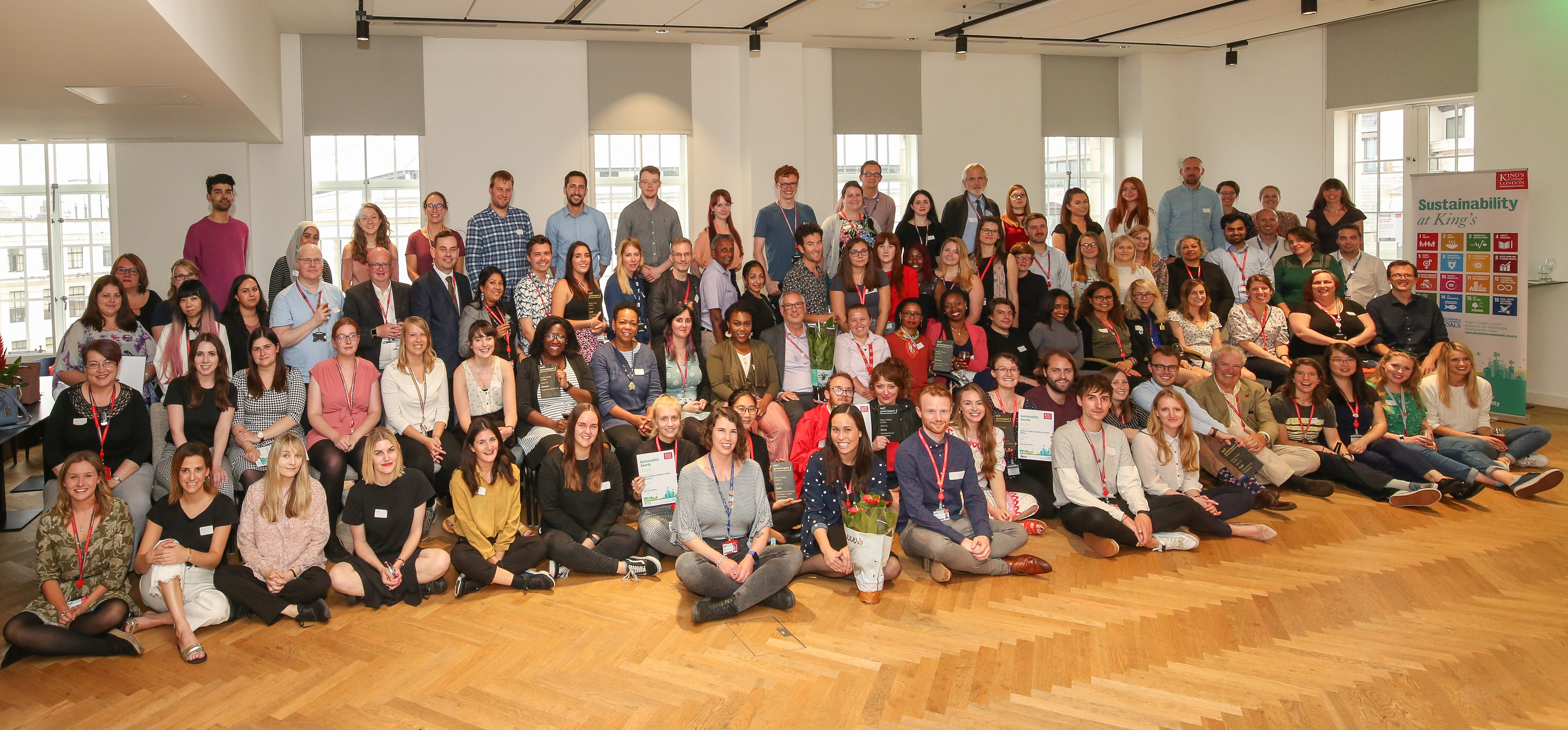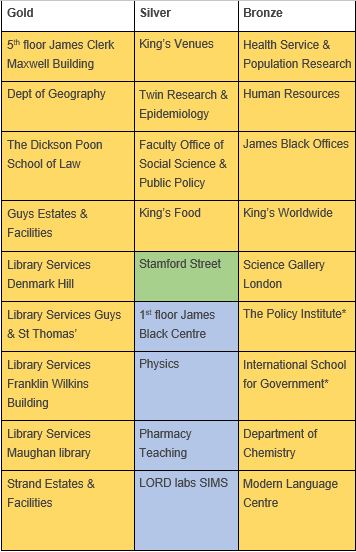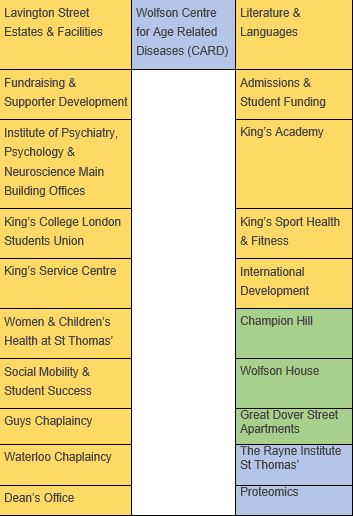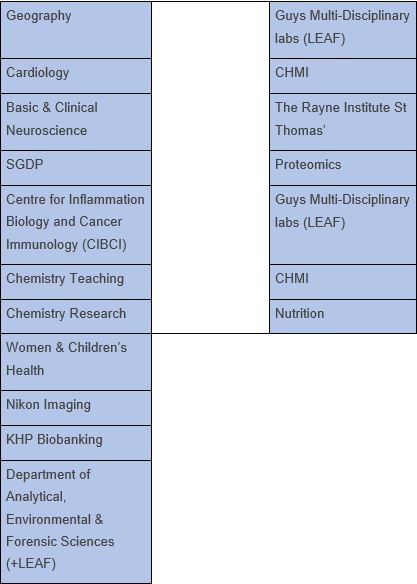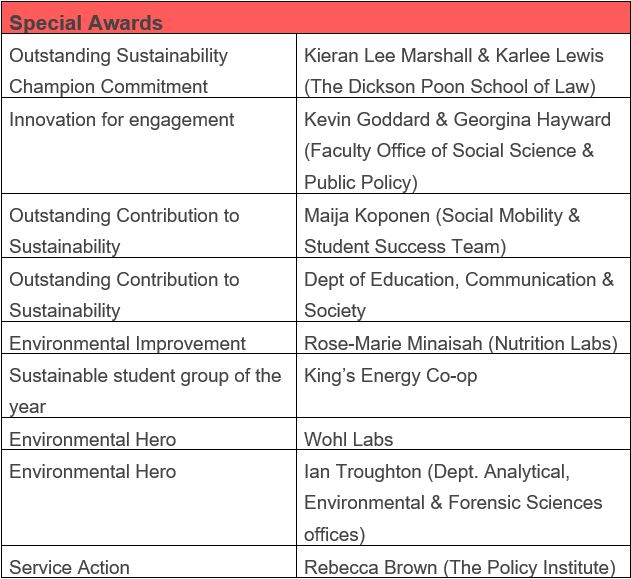This guest blog comes seventh in a series of blogs on the Sustainable Development Goals (SDGs) courtesy of Onna Malou van den Broek, second year doctorate student at King’s in the European & International Studies Department. Onna’s doctorate project titled: ‘The Political Payoff of Corporate Social Responsibility (CSR): CSR as a Determinant for Lobbying Success’, which looks at the relationship between corporate sustainability and lobbying, holding a special focus on the SDGs.
“We need to help these poor countries develop, to create industries that are able to compete globally, and better their lives” – as spoken by a British diplomat at a conference I recently attended. Without going into the problematic post-colonial mindset, it also raises a fundamental economic question (1). Underdeveloped countries need to develop. However, the so-called developed states are destroying our world. What will happen if all countries reach this level of industrialization?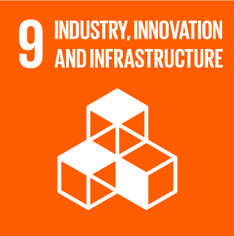
SDG 9: Innovation, industrialization and infrastructure
The starting point of this goal, just as we’ve discussed with goal 8, is that industries are the core drivers of the global development agenda (2). Reliable infrastructures and technological innovations are necessary to deliver the other goals, such as health care, sanitation and access to education. Some goals, for example, can be delivered through internet services. However, around 3.8 billion people, mainly from the least developed countries, still lack internet access. The growth of industries is closely tied to the global political economy. As a result of increased trade barriers and tariffs in 2018, global manufacturing and associated employment slowed down.
The Targets: Manufactory, mobility and research
This goal includes three broad issue areas which is reflected in the wide variety of indicators (3). Three indicators directly target the development of industries, aiming to stimulate inclusive industrialization; to provide access to financial credit for small and medium enterprises; and to make existing industries more sustainable in terms of clean and efficient resource-use. In addition, industry developments are heavily dependent upon innovation and, as such, the indicators aim to encourage industrial research and development through policies. Lastly, to include everyone in the process of industrialization, the indicators underline the importance of broad access to reliable infrastructure, such as all-season roads, energy-transmission or internet. Developed countries can support developing countries by providing access to novel information, finances and technology.
World’s system theory (Wallerstein)
 The central role of global political economy and trade has led to many critical scholars arguing the link between inequality and industrialization. One of the most influential is the world system theory, developed by the socialist Wallerstein in the late 20th century. This theory is influenced by the dependency theory and zooms in on the terms of trade (4). The main argument is that cheap labour and raw materials flow from low-income countries to high-income countries, who in turn, use these raw materials to manufacture goods which they sell for a much higher price back to low-income countries. This exploitative structure of trade and capitalism makes it difficult for low-income countries to escape.
The central role of global political economy and trade has led to many critical scholars arguing the link between inequality and industrialization. One of the most influential is the world system theory, developed by the socialist Wallerstein in the late 20th century. This theory is influenced by the dependency theory and zooms in on the terms of trade (4). The main argument is that cheap labour and raw materials flow from low-income countries to high-income countries, who in turn, use these raw materials to manufacture goods which they sell for a much higher price back to low-income countries. This exploitative structure of trade and capitalism makes it difficult for low-income countries to escape.
The Entrepreneurial State
Given that this is a government-led development Agenda, it is interesting that innovation is part of this goal. Some people have argued that innovation should be left to the dynamic entrepreneurs of the private sector instead of bureaucratic governments. In her book ‘the entrepreneurial state, Mariana Mazzucato refutes this argument and aims to debunk the public versus private sector myths. In her study, she finds that the private sector only finds the courage to invest after an entrepreneurial state has made the high-risk investments. For example, every technology that makes the iPhone so ‘smart’ was government funded. She criticises economic growth by showing a dysfunctional economic dynamic where the public sector socializes risks, while private sectors gets the rewards.
Resource-efficient infrastructures
Infrastructure developments, such as roads, buildings, energy and water infrastructure, are really resource intensive. They account for almost half of the global footprint. As such, resource efficiency of infrastructure can be a major driver of the transition to sustainable development. The UN Environment recently published a policy brief (6) in which they argue that our current project-by-project approach to infrastructure planning results in inefficient service delivery. System-level approaches, on the other hand, can increase the efficiency as they are better able to respond to user needs and capture positive industry spill-overs. This type of approach considers the economic, social and environmental impact of infrastructure systems, sectors, their location and relevant governance framework throughout the entire lifecycle, enabling industrial symbiosis and product circularity.
What can you do?
- Since this goal takes place on a systems-level, your first step is to inform yourself about issues such as global trade, international power imbalances and the grow-degrowth debate. There are plenty of resources. Books that I found useful are: ‘degrowth: a vocabulary for a new era’ and ‘a splendid exchange: how trade shaped the world’.
- Use your dissertation to contribute to knowledge around these topics. Talk to lectures about what research question might fit your specific programme and use your outcomes to start dialogues with different groups of people, such as policymakers, NGOs or firms.
- Due to the high level of abstractness, it is especially important to put pressure on your local, regional, national and international political representatives by tweeting, writing, voting, etc. to make sure they implement good policies.
References
(1) For a more elaborated discussion about economic growth, you can read the blog on SDG8 I wrote last month.
(2) Read more about why this goal matters: https://www.un.org/sustainabledevelopment/wp-content/uploads/2019/07/9.pdf
(3) Specific indicators, targets and progress can be found here: https://sustainabledevelopment.un.org/sdg9
(4) An easy and fun way of learning more about the system theory is through this video clip: https://www.youtube.com/watch?v=yRLd7xJNn14
(5) Buy the book at your local bookshop or watch the four things you need to know in 60 seconds: https://marianamazzucato.com/entrepreneurial-state/
(6) The UN policy brief can be found here: https://www.greengrowthknowledge.org/sites/default/files/downloads/resource/Policy%20Brief%20-%20Making%20Infrastructure%20Resource%20Efficient.pdf

